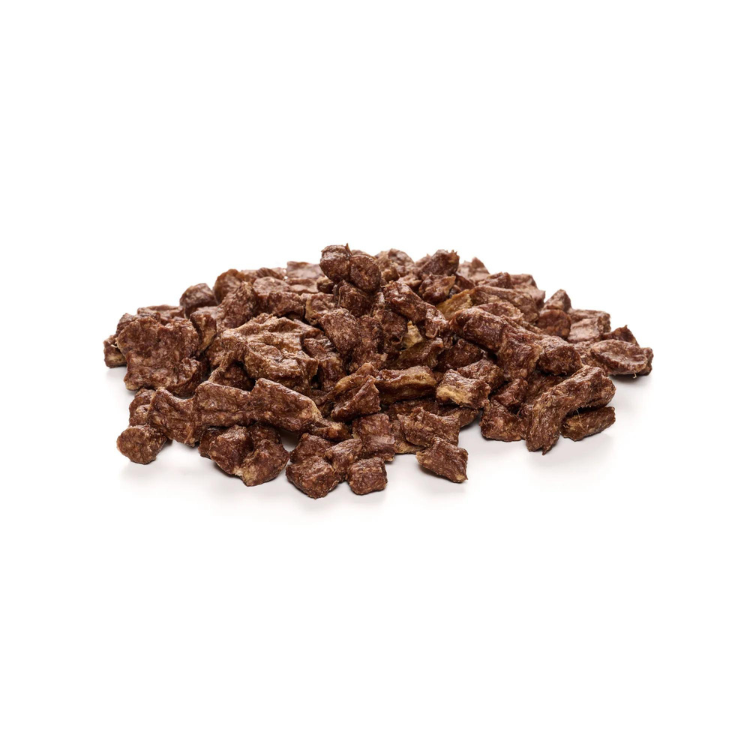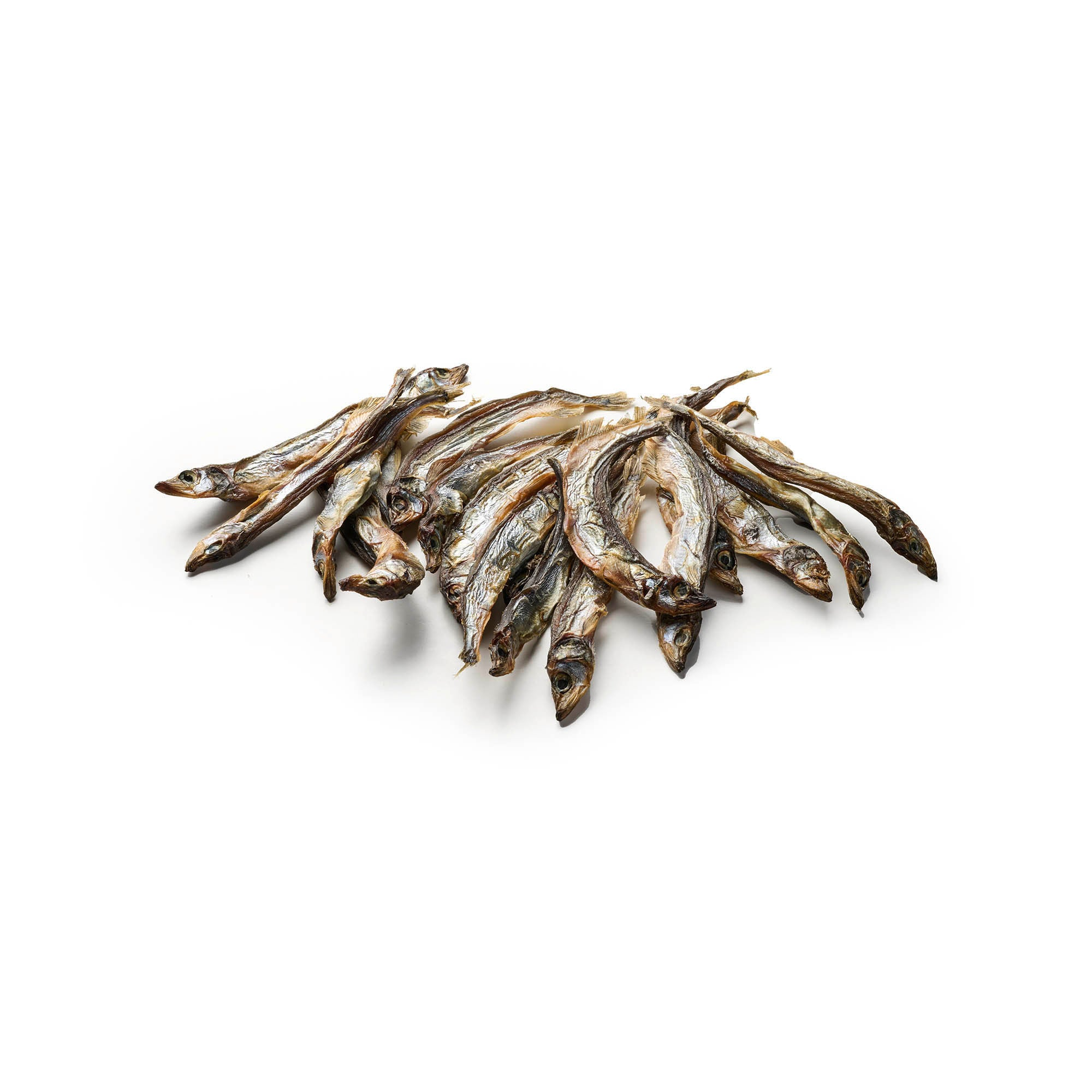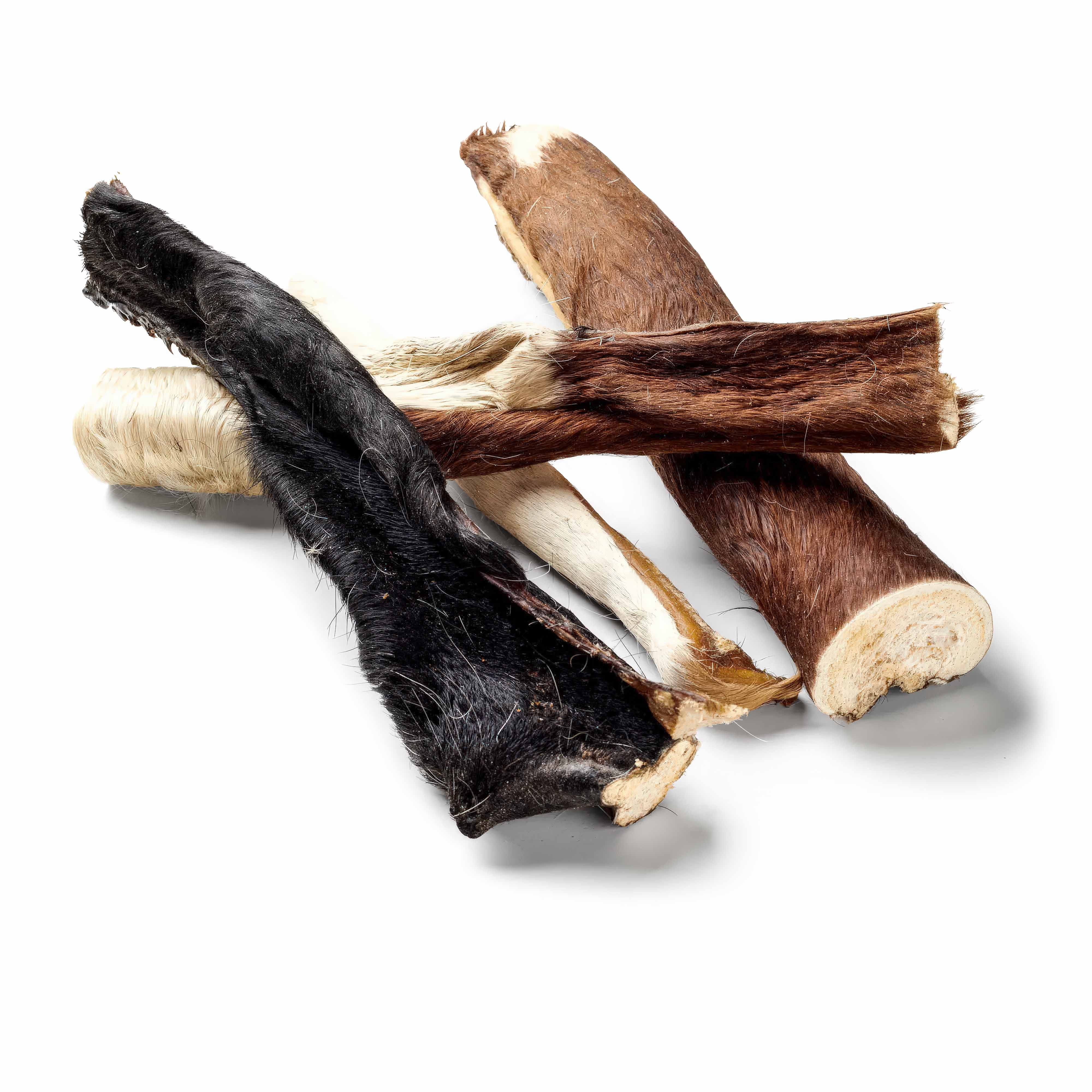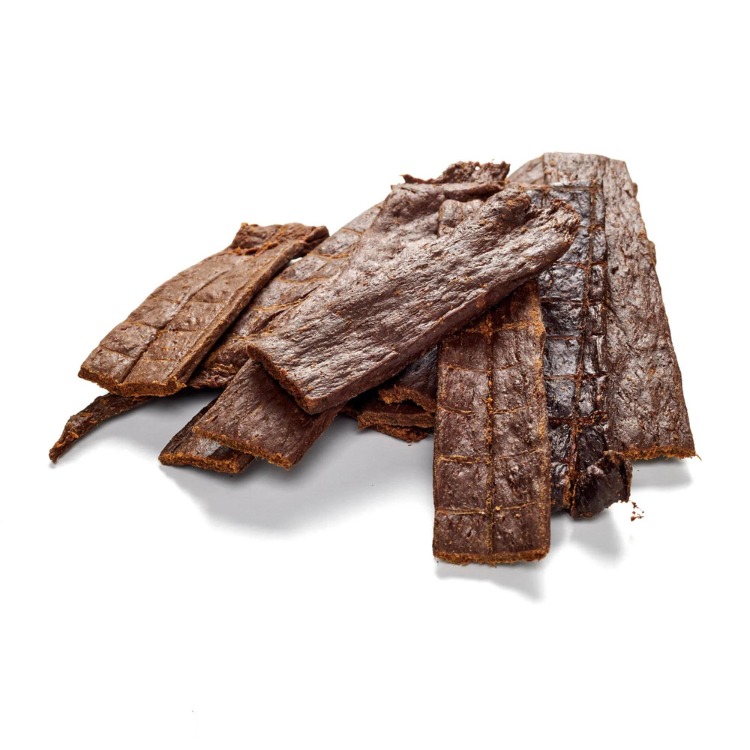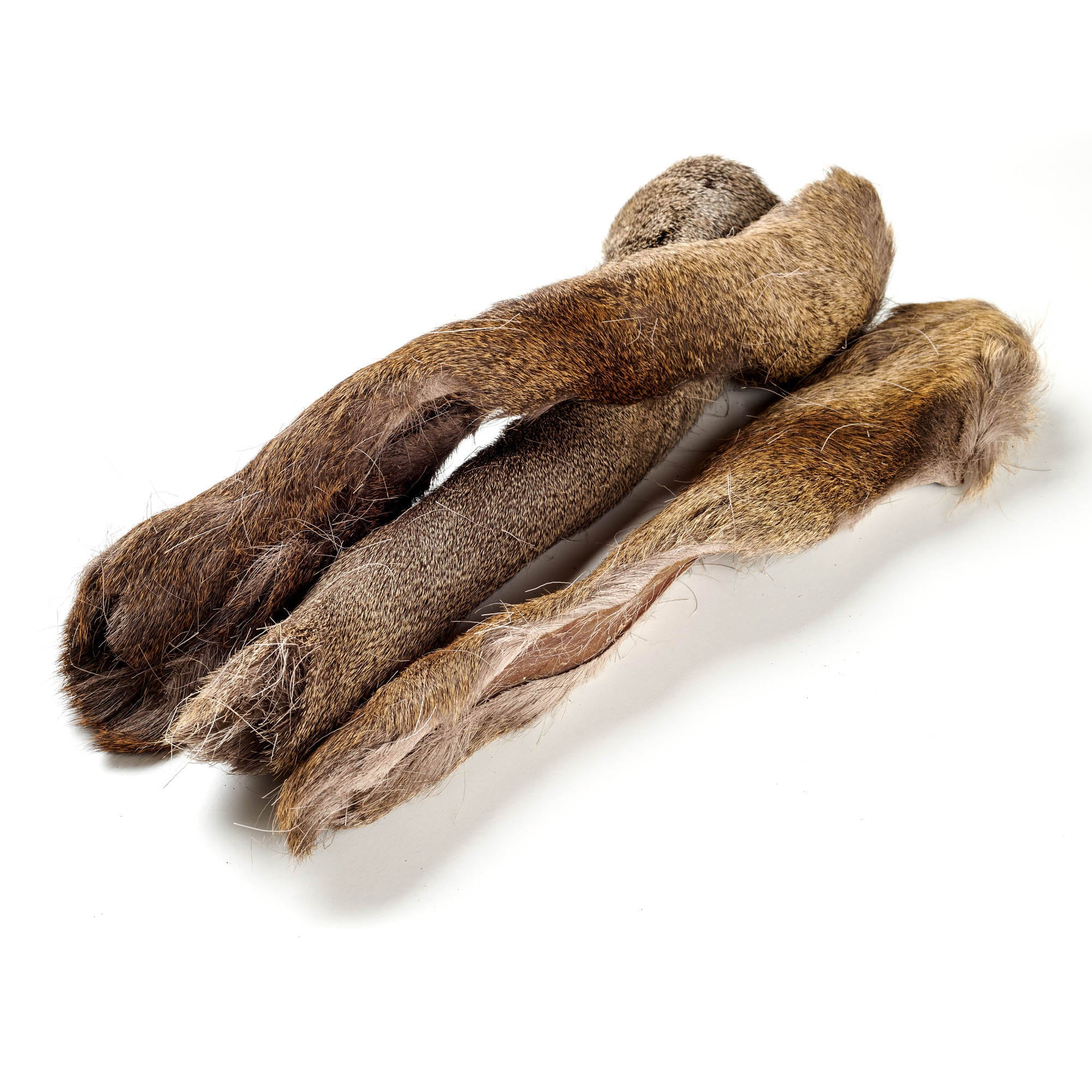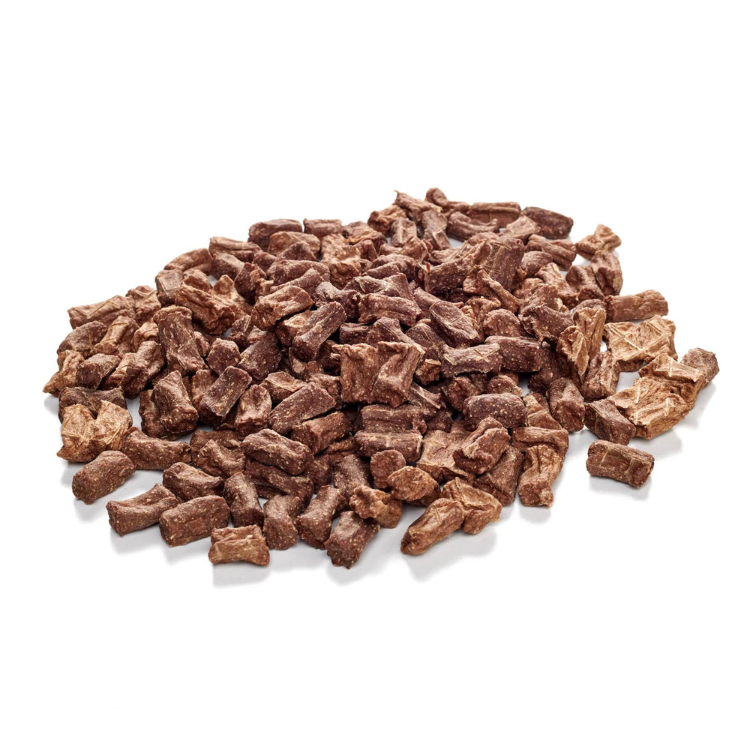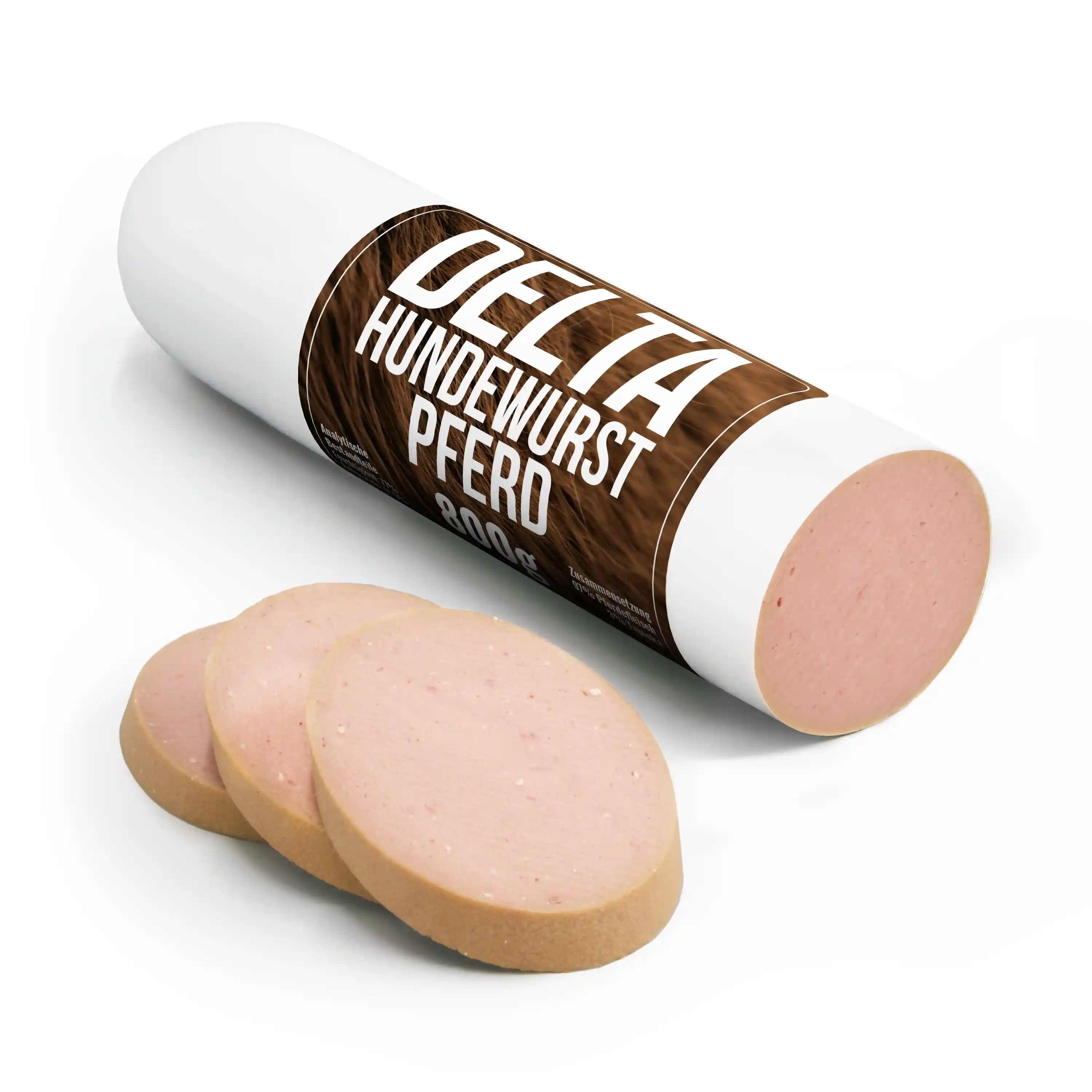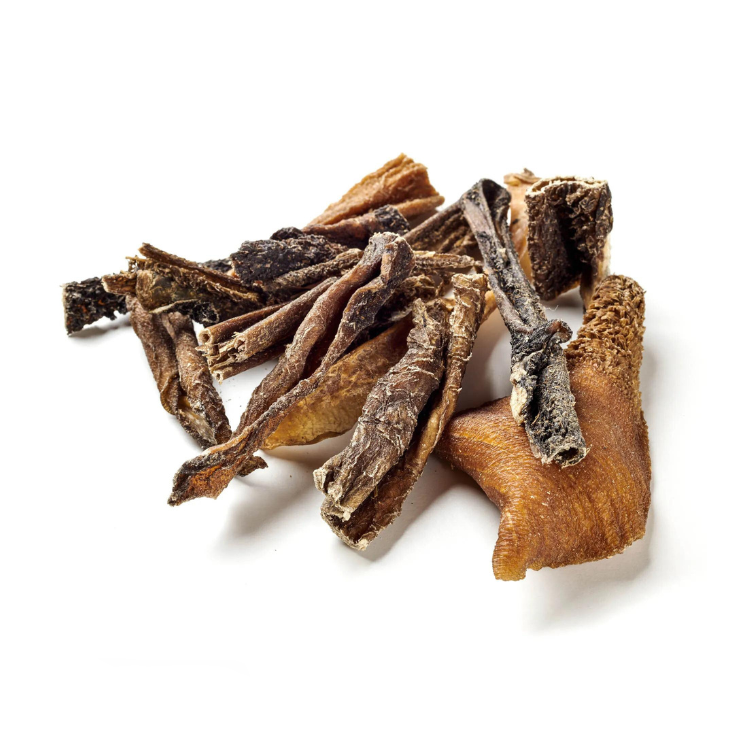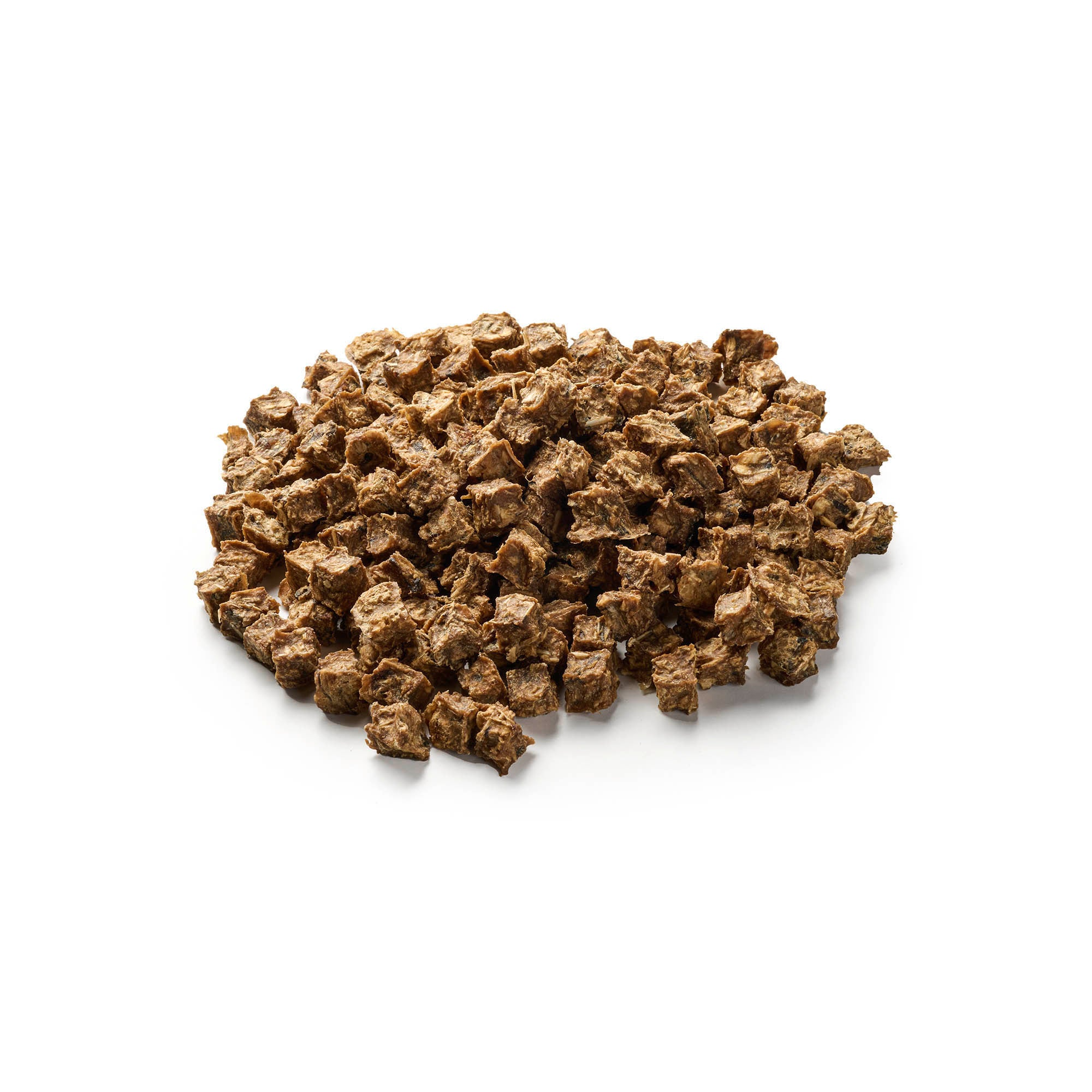
Grain-free dog food - what you should know
Share
The cultivation of grains has allowed humanity to settle down and has led to an incredible growth in the human population hundreds of years ago. Whether wheat, barley or rye, they all have great properties and provide us with a lot of important nutrients. But some types of grain contain gluten - and this is increasingly being criticized. In dog food in particular, it is sometimes completely rejected. But are the criticisms justified?
The dog is by nature a predator, just like its ancestor, the wolf. This means that both animal and plant nutrients are part of its natural diet. However, some dogs suffer from intolerances to certain ingredients in their food, such as grains. We will explain what grain-free dog food is all about.
Contents: Grain-free dog food
- Grain-free dog food reduces the risk of allergies
- Best grain-free dog food
- Grain-free dog food with high meat content
- Only one type of protein
- Conclusion
If a dog is unable to properly digest certain animal proteins, vegetarian dog food may be a good alternative. Other dogs may not be vegetarians but may be gluten intolerant, so grain-free dog food is preferable. This realization is also increasingly reflected in the range of food variants on the market for dogs, which is why grain-free dog food is increasingly being offered, both with and without meat . However, many dog owners still wonder whether dog food with or without grain is better.
Pamper your dog with our chew products!
Grain-free dog food reduces the risk of allergies
If your dog is a bit sensitive, you may want to consider buying cold-pressed dog food without grains and additives, as grains are one of the most common allergy triggers .> If your dog eats meat, you should only give him high-quality meat to cover his protein and fat needs. Even with an active dog, it is best to avoid too many carbohydrates. Dogs are not able to utilize grain optimally, which can often lead to problems. As with humans, your dog may either have a gluten intolerance or may develop it. Your dog may then suffer from diarrhea, intestinal irritation or itching in various parts of the body.> In order to replace the necessary minerals, fiber and carbohydrates and at the same time reduce allergies caused by grains, grain-free dog food can be enriched with vegetables.
Spoil your four-legged friend with our delicate chew items!
Best grain-free dog food
Although it can be beneficial to serve your dog grain-free dog food, it is still important to ensure the quality of the food. It is important to check whether the dog food contains the best ingredients and which production process was used to produce it. This has a direct impact on how well your dog tolerates the food.
Grain-free dog food with high meat content
In general, grain-free dog food with a high meat content is quite popular among dog owners. If quality grain-free dog food contains a lot of meat, it will help your dog to consume important proteins and fats.> By making sure that your dog gets enough vegetables, you are also ensuring that he is getting a balanced diet. You can also include various herbs, berries, nuts and even oils and roots in the diet. Healthy dog food without grains can contain a rich mixture of meat, vegetables, nuts and berries. Which mixture is ultimately the right one for your four-legged friend depends very much on his intolerances.
Only one type of protein
If you have noticed over time that your dog is occasionally prone to allergic reactions due to intolerance, you should identify the individual components of his food. If he eats a lot of meat and you are serving him a high-meat, grain-free dog food, make sure the protein comes from a single source. In this way, you can use the process of elimination to determine which foods your four-legged friend is intolerant to. If you suspect your dog is allergic, it may also be a good idea to serve dog food without grains or sugar.
Conclusion
The nutrition of our dogs can lead to heated discussions and many different opinions sometimes lead to radical convictions. Ultimately, it is up to each individual. But the dog's health should always be the priority - not your own beliefs and values. In order to ensure the perfect nutrition for your own dog or breed, a consultation with your trusted veterinarian is certainly not a bad idea.
Delicious chews for your faithful companion now available!

